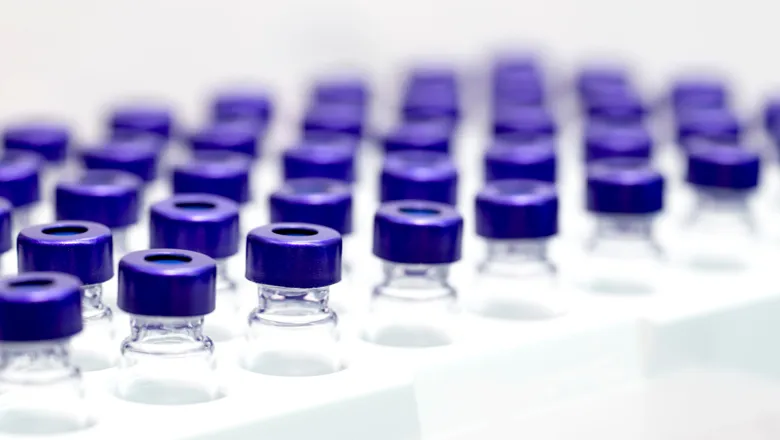Psilocybin, in 10 mg or 25 mg doses, has no short- or long-term detrimental effects in healthy people
Patrick O’Brien
King’s College London News Center, 2022
https://www.kcl.ac.uk/news/psilocybin-in-10mg-or-25mg-doses-has-no-short-or-long-term-detrimental-effects-in-healthy-people
Psilocybin can be safely administered at doses of either 10mg or 25mg to up to six participants simultaneously.

New research from the Institute of Psychiatry, Psychology, & Neuroscience (IoPPN) at King’s College London, in partnership with COMPASS Pathways, has established that psilocybin can be safely administered at doses of either 10mg or 25mg to up to six participants simultaneously.
The research, published in The Journal of Psychopharmacology, is an essential first step in demonstrating the safety and feasibility of psilocybin – a psychedelic drug isolated from the Psilocybe mushroom – for use within controlled settings alongside talking therapy as a potential treatment for a range of mental health conditions, including treatment-resistant depression (TRD) and PTSD.
Current treatment options for these conditions are ineffective or partially effective for many people, resulting in a significant unmet need. Early research has indicated a potential for psilocybin therapy to treat these groups, but no trials have been undertaken at the scale needed for regulatory approval to make the therapy available.
The trial is the first of its kind to thoroughly investigate the simultaneous administration of psilocybin. 89 healthy participants with no recent (within 1 year) use of psilocybin were recruited. 60 individuals were randomly picked to receive either a 10mg or 25mg dose of psilocybin in a controlled environment. In addition, all participants were provided with one-to-one support from trained psychotherapists. The remaining 29 participants acted as the control group and received a placebo, also with psychological support.
Participants were closely monitored for six to eight hours following administration of psilocybin and then followed up for 12 weeks. During this time, they were assessed for a number of possible changes, including sustained attention, memory, and planning, as well as their ability to process emotions.
“This is the largest ever randomised controlled trial with psilocybin published in a peer-reviewed journal.This rigorous study is an important first demonstration that the simultaneous administration of psilocybin can be explored further. If we think about how psilocybin therapy (if approved) may be delivered in the future, it’s important to demonstrate the feasibility and the safety of giving it to more than one person at the same time, so we can think about how we scale up the treatment. This therapy has promise for people living with serious mental health problems, like treatment-resistant depression (TRD) and PTSD. They can be extremely disabling, distressing and disruptive, but current treatment options for these conditions are ineffective or partially effective for many people.”– National Institute for Health Research Clinical Scientist Dr James Rucker, the study’s lead author from King’s IoPPN and honorary consultant psychiatrist at South London and Maudsley NHS Foundation Trust
Throughout the study, there were no instances of anyone withdrawing from the study due to an adverse event, and no consistent trends to suggest that either of the psilocybin doses had any short- or long-term detrimental effects on participants.
Professor Guy Goodwin, Chief Medical Officer, COMPASS Pathways, said: “This study was an early part of our clinical development programme for COMP360 psilocybin therapy. It explored the safety and feasibility of simultaneous psilocybin administration, with 1:1 support, in healthy participants, and provided a strong foundation to which we have now added positive results from our phase IIb trial in 233 patients with TRD, and from our open-label study of patients taking SSRI antidepressants alongside psilocybin therapy. We are looking forward to finalising plans for our phase III programme, which we expect to begin in Q3 2022.”
The investigators have since completed Phase II of the study, which has explored the efficacy and safety of psilocybin in people living with TRD and PTSD, and are analysing the data.
This study was possible thanks to funding from COMPASS Pathways.
The effects of psilocybin on cognitive and emotional functions in healthy participants: results from a phase 1, randomised, placebo-controlled trial involving simultaneous psilocybin administration and preparation (DOI10.1177/02698811211064720) (James J Rucker, Lindsey Marwood, Riikka-Liisa J Ajantaival, Catherine Bird, Hans Eriksson, John Harrison, Molly Lennard-Jones, Sunil Mistry, Francesco Saldarini, Susan Stansfield, Sara J Tai, Sam Williams, Neil Weston, Ekaterina Malievskaia, and Allan H Young) was published in the Journal of Psychopharmacology.